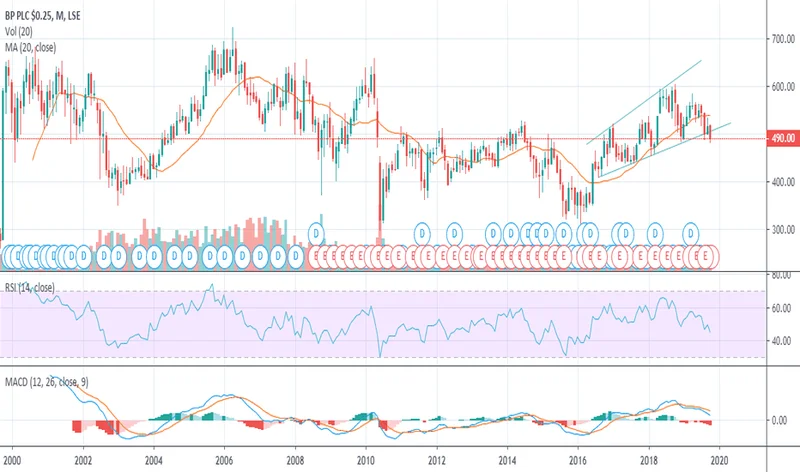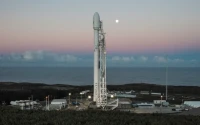BP's Pipeline Hiccup: A Teachable Moment for Our Energy Future?
Okay, let's be real. Another BP pipeline incident? It's easy to roll your eyes. We've seen this movie before, right? Leaks, shutdowns, the obligatory "we're committed to safety" press releases… But, before we dive into the usual cynicism, I want to suggest something radical: maybe, just maybe, this latest hiccup near Snohomish is a chance to rethink our whole energy infrastructure.
The facts are straightforward enough. A leak in the Olympic Pipeline, spewing jet fuel near a blueberry farm (of all places!). Both pipes initially shut down, one restarted, then bam, shut down again. Fuel prices might jump a bit, airports are holding their breath, and everyone's scrambling to figure out what went wrong. According to one report, the cause of the leak is still unknown, and BP doesn't have an estimate for when repairs will be completed. We've seen this before, and it's frustrating, believe me, I get it.
But what if we zoom out for a second? What if this incident is a tiny, localized symptom of a much larger, systemic challenge? We're talking about a 400-mile network of pipes, crisscrossing Washington state, carrying volatile fuels. It’s a system built for a different era, an era before climate change became an existential threat, an era before we had the technology to build genuinely sustainable energy solutions. This isn’t just about fixing a leak; it's about patching up a system that’s fundamentally…leaky.
Rethinking the Flow: A Chance for Innovation
Think about it like this: our current energy infrastructure is like an old, sprawling city with ancient plumbing. We keep patching the pipes, fixing the leaks, but the underlying problem is the system itself. It’s inefficient, vulnerable, and frankly, outdated. Now, imagine if, instead of just patching, we started building a new city, designed from the ground up with sustainability in mind. What would that look like?
It would involve a shift away from these massive, centralized pipelines, vulnerable to leaks and disruptions. It would mean investing in distributed energy systems, like solar microgrids and localized biofuel production. It would mean prioritizing energy efficiency and reducing our overall demand for fossil fuels. It's not just about replacing one pipe with another; it's about reimagining the entire flow of energy.
The Pipeline Safety Trust advocacy group said these incidents “cannot become routine.” I couldn't agree more.
Of course, this isn't a simple overnight fix. It requires significant investment, technological innovation, and a fundamental shift in our thinking. But the potential benefits are enormous. A more resilient, sustainable energy system would not only reduce the risk of spills and disruptions but also create new jobs, stimulate economic growth, and help us combat climate change.
Now, some might say this is all pie-in-the-sky dreaming. That transitioning away from fossil fuels is unrealistic, too expensive, or too disruptive. But I would argue that the cost of not transitioning is far greater. The cost of continued spills, environmental damage, and climate change is simply unsustainable. What happens if the smaller, 16-inch pipe fails too? Then what? We can't keep kicking the can down the road.

This isn’t just about BP's pipeline; it’s about the future of our planet. It's about creating a world where energy is clean, reliable, and accessible to all. And it starts with acknowledging that the old ways of doing things simply aren't working anymore.
Is This Our "Printing Press" Moment for Energy?
Okay, I'll admit it: I'm an optimist. I believe in the power of human ingenuity to solve even the most complex problems. And when I look at the challenges facing our energy system, I see not just obstacles but opportunities. Opportunities to innovate, to create, and to build a better future.
Think about the invention of the printing press. Before Gutenberg, knowledge was controlled by a select few. Books were expensive, rare, and difficult to access. The printing press democratized knowledge, making it available to the masses and sparking a revolution in learning and innovation.
I believe we're at a similar inflection point with energy. We have the technology to create a truly decentralized, sustainable energy system. We just need the will to make it happen. We need to break free from the old, centralized models and embrace the power of distributed solutions.
And honestly, when I see the passion and ingenuity of the people working on these solutions, I can't help but feel hopeful. From solar panel innovators to biofuel pioneers, there's a whole community of bright minds dedicated to creating a cleaner, more sustainable energy future.
Time to Turn a Crisis Into a Catalyst
So, what's the takeaway from this latest BP pipeline incident? It's not just about a leak in a pipe; it's about a leak in our thinking. It's about recognizing that our current energy system is unsustainable and that we need to embrace a new paradigm.
It's about investing in distributed energy solutions, prioritizing energy efficiency, and reducing our reliance on fossil fuels. It's about creating a more resilient, sustainable energy system that benefits everyone. According to experts, gasoline prices in Washington may increase because of the BP pipeline leak. WA gasoline prices may increase due to BP pipeline leak, expert says
It's a complex challenge, no doubt. But I believe we're up to it. I believe we have the technology, the resources, and the will to create a better future. We just need to start thinking differently. We need to stop patching the old pipes and start building a new city.










